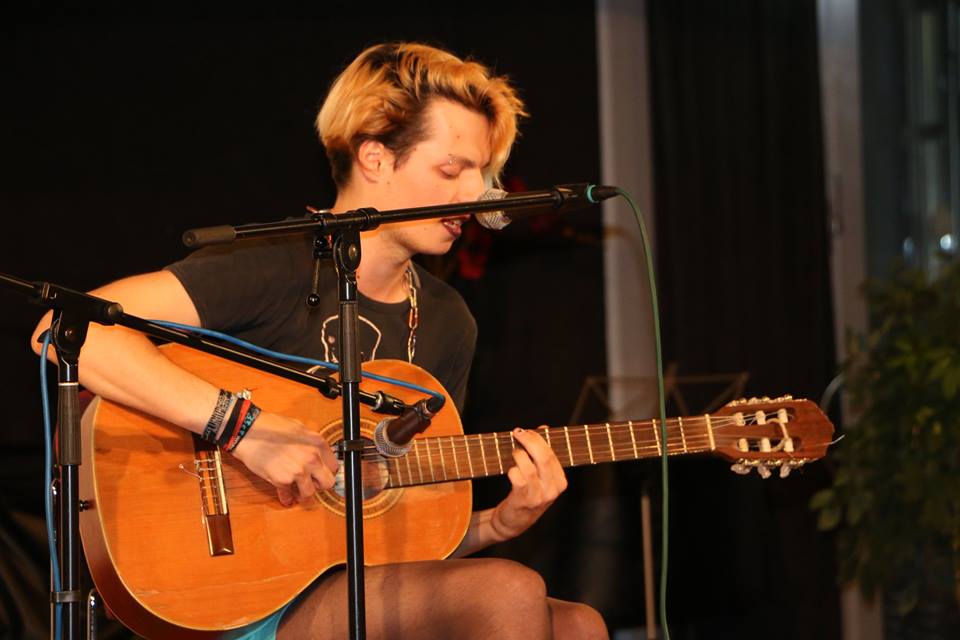Open Source has deeply influenced das_synthikat – our music is truly cyberpunk, talking about life and power relations in the digital age. And it is for free, released under a Creative Commons license, just as my solo music. This means it belongs to you, you can legally listen to it, share it, and even remix it. For free.
The Open Source culture believes that everything gets better, if more people look at it, contribute, give their feedback. Openness and transparency are benefiting art, and are the real purpose we are singing, writing, painting and dancing anyway – we want to be seen.
And that’s why I’m giving away my art for free. Not only do I want to be seen, read, and listened to – I want others to use my work. You like my tune? Use it! You like some of my lyrics, but they aren’t in your friends’ language? Translate them, and rerecord the song. Sharing is caring.
But how Can You Earn Money Without Copyright?
I don’t think it’s the most relevant question – there are already not many artists who can make a living with art. But I will answer it nonetheless.
For a long time I have been working part time for two Open Source projects. Part time jobs are one option; you don’t have to worry about making a living with art anymore, and still have enough time to do art, activism, relationships, nothing, all the things life is worth living for.
Open Source companies have the same problem; they also have to find out how to earn money by giving most of their work away for free. Once I wrote a blogpost for ownCloud about the different ways to fund Open Source software. Spoiler: the conclusion is that we need a basic income if we really want the problem solved. This also applies to art, and to every other area of life, in my humble opinion.
But where ownCloud has to create some software under a proprietary license so the developers can earn their living and the shareholders get their profits, artists have more options.
Making a Living as an Artist
Of course I am in a rather privileged position here – I never had to earn a living with music alone. So take all of this with a grain of salt.
One good way is asking for donations. You need money to record an album? Crowdfund it! Or even better, use Liberapay or Patreon to ask your fans to provide you a sustainable monthly income. Amanda Palmer made an art out of asking people for their support – I recommend her TED talk about the topic. It’s great:
If you are a musician, you can also hope for the gig economy. Get paid for gigs, not for your records. See it this way – the more accessible your music is, the more likely you will be invited to give a concert. In the beginning it will not be a lot – but let’s be honest, a price tag on your album wouldn’t have helped you with that, right?
If there is no gig around but you need money desperately, you can still play on the street. Especially in summer. If you have a good spot and are not bad, you can earn good cash in the city. I don’t have much experience with that unfortunately, but keep in mind that this is always an option.
There are also music lessons. The digitalized society made it harder to sell copies, because they can so easily be distributed for free. But the skills we have acquired on our way to create great art are still worth something. Listening to music is easy, but actually learning to create music is harder; you can’t copy knowledge as easily as data. This is your capital, and as long as you have to live in capitalism, profit from it.
And finally – there is no shame in accepting money from the state. Many societies have the privilege of a welfare state, a bureaucratic monster introduced to pacify the revolting working class in the end of the 19th century. It’s not an unconditional basic income, but if you are not responsible for children, you can live quite well off it. A good social worker can deal with the bureaucrats.
Revolution
Well, revolutions are a good time for musicians. After the revolution though…

